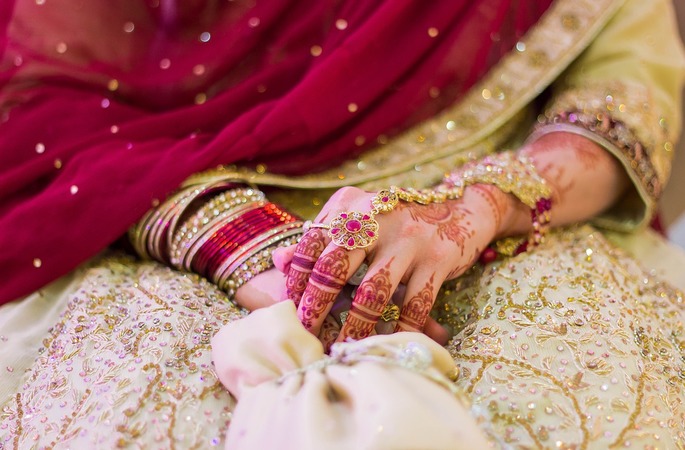She feels suffocated, but there is no way out. She feels violated, but she can’t leave. She is chained, but she can’t break the shackles. She is vulnerable. She is miserable. She is denied. She is disrespected. She is harmed. But she decides to stay. She thinks it’s meant to be tough. It needs time. Like many other girls, she hopes it will work someday. A year passes. Then another year passes, then another, and another. But nothing changed.
At last, she is tired. She finally decides to leave. Now her behaviour is considered unacceptable.
We live in the 21st century, but women in Pakistan are still looked down upon if divorced. Many women prefer to stay in abusive marriages because of the cultural stigma attached to divorce. Every year several cases of domestic violence against women are reported in the country. In some cases, women have been brutally murdered by their spouses or in-laws because they stayed silent due to the intense social pressure they would have to experience if they were divorced or separated from their spouses. They preferred being dead over being divorced since society made it easier for them to choose the former.
The age-old saying that a woman is supposed to leave her husband’s house only after she dies, which has its roots in the patriarchal culture that prevails in the sub-continent, is still widely practised in Pakistan and India. A woman is expected to suffer in silence to protect her marital relationship.
The idea of making a marriage work is ingrained to the extent that most women tend to sacrifice everything from their individuality to self-respect, even for safeguarding an already dead relationship.
There is ingrained prejudice towards divorced women. Any woman who decides to take a stand and saves herself by coming out of an abusive marriage must gather the courage to deal with the emotional distress and be prepared to face the cruel world that will hurt them more.
While divorce is a struggle for everyone irrespective of the culture that they belong to, for women in Asian countries, it is more of a continual social struggle.
Women, after divorce, suffer from feelings of persistent guilt, anger, bitterness, nervousness, and even poor self-worth.
No matter what socio-economic and educational background they are from, they feel rejected and emotionally exhausted. Financially independent and well-educated women can take care of their own and their children’s needs. But they too cannot save themselves from being the victim of stigmatisation and intense criticism.
No matter what age group they belong to or in what circumstances they have taken this step, they are constantly expected to justify ending their marriage.
One can only wonder the struggles that women belonging to rural or economically challenging backgrounds have to experience in such a scenario.
One of the primary reasons behind the miseries that any woman ending a toxic marriage has to go through is the outdated belief that divorce is considered one of the acts most disliked by God.
The majority does not even consider divorce an option due to a popular religious narrative that says God opposes those who end a marriage. As a result, most women spend their lives being stuck in a toxic marriage.
While men too experience social and emotional pressure after going through a divorce, the struggles of women far outweigh that of men because of a patriarchal social system, where mostly women are blamed if a marriage does not work.
There exists a strong need to empower women by teaching them about their fundamental rights. Many women, especially the less educated ones, are not even aware of the different forms of abuse. Several women are still unaware of psychological and emotional abuse and its severe physical and psychological repercussions.
Besides, in most lower and middle-class families, girls are raised to believe how they need to get married after they reach a certain age or be treated as outcasts. Consequently, many get married at a young age for social acceptance and without being aware of their legal rights in a marriage.
Young girls and women need to be trained to develop a sense of fulfilment and independence without relying on a man. Skilled based programs must be designed for young girls and women in developing countries so that they have chances of becoming financially independent and empowered. It’s high time we collectively shatter the myths attached to the idea of getting married in our society.
We need to teach girls that marriages are meant to ensure that both men and women enjoy equal rights.
Also, responsibilities must be equally divided between the two to protect women from being exploited in a marriage. Since education and empowerment go hand in hand, there is a constant need to educate women about the various forms of injustice and exploitation that women across the world experience in one form or another.
Women are exploited because they are considered weak, submissive, and subordinate as opposed to men.
We also need to raise stronger women by making them realise that they should not marry for the sake of social acknowledgement but only if the relationship adds meaning to their lives and gives them a sense of purpose and fulfilment.
We, as a society, need to demonstrate empathy towards women who have been through a divorce instead of questioning their decision and adding to their miseries and self-doubts.
Women who have undergone or are still experiencing such stressful situations need to be reminded of how powerful they are to do what is right for them despite all the social pressures and taboo attached to divorce. I want every woman in this phase to know that sometimes giving up is the bravest thing that anyone could do and that leaving is better than holding onto something already ruined.



